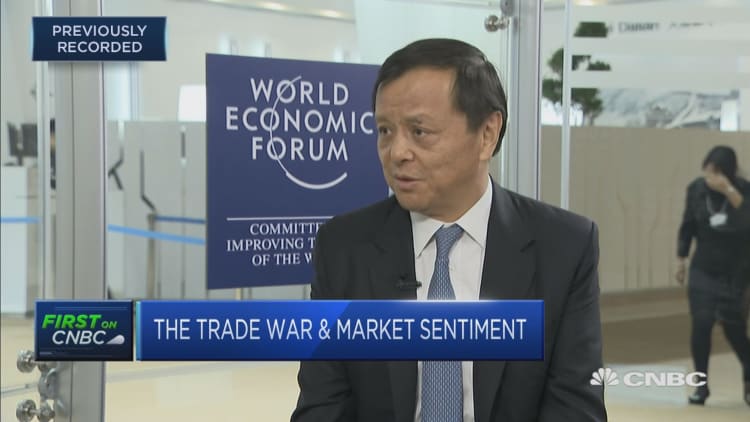
Tech darlings such as Chinese mobile phone maker Xiaomi might have seen weak investor interest in Hong Kong lately, but they don't appear be motivated by high stock valuations anyway, said Charles Li, the CEO of Hong Kong Exchanges and Clearing (HKEX).
Many of these rising companies are cash rich and maintaining top positions in their respective industries is more important to them, Li told CNBC at the World Economic Forum on Wednesday.
"They do seem to have strong confidence in their underlying ... businesses," Li said. "A lot of these major competitive new economy spaces, you really need to be number one, number two, at worst number three, to survive. And so maintaining that leadership position is very important."
Still, he sees such companies heading for public listing despite the market "not pricing them at the top."
"So whether capital markets give you a great valuation or not, seems to be not necessarily the primary driver of a lot of those listings," he added.
Hong Kong has seen a pickup in interest for listings following a market rally early this year and after the exchange introduced new rules designed to attract tech companies by allowing dual-class share structures.
But the benchmark Hang Seng index has fallen about 18 percent since its January peak amid U.S.-China trade tensions, and several recent listings — such as Xiaomi's — have dropped below their IPO prices.
Xiaomi had a disappointing initial public offering in Hong Kong in July. Experts had said it could be a reflection of lackluster investor interest for "new economy" type of Chinese companies, as well as disappointing valuations in the East Asian finance hub.
Sentiment surrounding Chinese companies with global ambitions has also been hurt by the escalating U.S.-China trade tensions, they say.
Among the Chinese tech companies seeking to file (or that have already filed) IPOs in Hong Kong this year are: Meituan Dianping, an online platform with services from food delivery to ticketing; Bitmain, bitcoin mining equipment maker; and Maoyan Weying, Chinese movie ticketing platform.
But Li stressed that the up and coming companies are not that affected by "marginal" market movements. Rather, those who are not listing have other business considerations, such as regulatory concerns or other strategic factors.
"Those who do choose to come, deeper conversations with them give me strong confidence that the market seems to be secondary … in driving their decisions on timing," he reiterated. "People don't seem to be bothered by the fact that they are not raising as much money as they can."
"These companies are really major rising stories. This incremental capital … the marginal up and down, does not really impact that much."
— CNBC's Kelly Olsen and Reuters contributed to this article.


